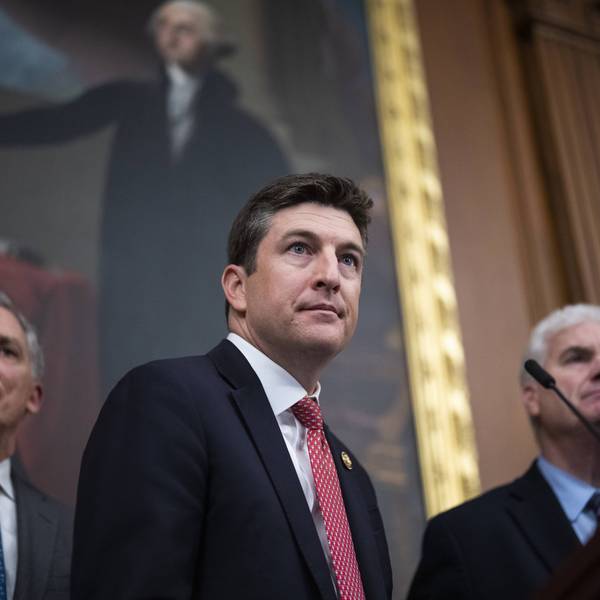Voting rights advocates have long charged that Ohio's practice of purging "inactive" voters from state registration rolls is unconstitutional, and on Wednesday they made their voices heard before the Supreme Court.
"Knocking eligible voters off the rolls simply because they exercise their right not to vote is illegal."
--Dale Ho, ACLU
The issue at the center of Husted v. A. Philip Randolph Institute is Ohio's approach to the right to vote, which has been characterized as "use it or lose it." If a citizen has not been active in elections for two years, the state sends out a notice requesting an address confirmation to ensure that they have not moved. If the individual doesn't respond and proceeds to not vote or engage in another form of electoral activity in the subsequent four years, the state maintains that it is reasonable to remove this person from the voter rolls.
"In 2015, hundreds of thousands of Ohio voters who had last voted in 2008 were removed from the voter registration rolls," the policy think tank Demos notes. "Many of these voters--as well as voters who had been purged under Ohio's Supplemental Process in previous years--went to the polls in November 2015 and March 2016 only to learn that their names no longer appeared on the rolls, and were denied their fundamental right to vote."
The American Civil Liberties Union (ACLU)--which, along with Demos, presented oral arguments against Ohio's so-called "supplemental process" on Wednesday--contends that the state's system effectively punishes citizens for not voting, in violation of the 1993 National Voter Registration Act.
"Knocking eligible voters off the rolls simply because they exercise their right not to vote is illegal," said Dale Ho, director of the ACLU's Voting Rights Project.
In 2016, a federal appeals court expressed its agreement with ACLU's stance by deeming Ohio's purges unconstitutional. Ohio was quick to appeal the decision, and the Supreme Court announced in May that it would hear Husted.
As Reuters noted on Wednesday, conservative Supreme Court justices were joined by Stephen Breyer in "signaling sympathy toward Ohio's policy of purging infrequent voters from registration rolls."
Justices Sonia Sotomayor, Elena Kagan, and Ruth Bader Ginsburg disagree, arguing that Ohio's system is unconstitutional and that it overwhelmingly affects vulnerable communities.
"What you do results in disenfranchising disproportionately certain cities where large groups of minorities live, where large groups of homeless people live," Sotomayor said.
Andre Washington, president of the A. Philip Randolph Institute in Ohio, echoed Sotomayor in a statement on Wednesday, arguing that "voter purges, like Ohio's supplemental process, disproportionately affect low income voters and voters of color who face countless barriers to casting their ballot."
Election law experts argued that a ruling in Ohio's favor would empower Republican-controlled states to carry out more aggressive purges of their own.
"If the court sides with Ohio, you'll see more red states making it easier to drop people from the voter registration rolls," concluded Rick Hasen, a professor at the University of California at Irvine.
As Common Dreams has reported, the Trump Justice Department filed an amicus brief in August backing Ohio's voter roll purges--a move critics decried as "further confirmation of some of our worst fears about the Trump administration's crackdown on voting rights."




